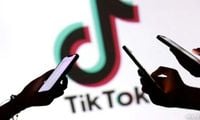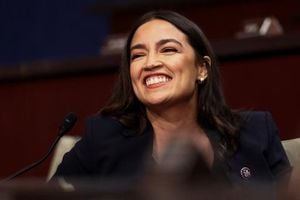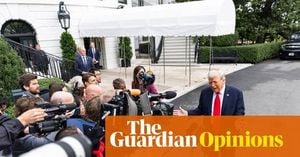In a year marked by escalating U.S.-China tensions, the fate of TikTok and American tech giants like Nvidia has become a flashpoint for global business, national security, and the digital lives of millions. The latest round of negotiations, culminating in Madrid on September 16, 2025, has left both sides scrambling to declare victory—while the underlying issues remain far from resolved.
For TikTok, the stakes could hardly be higher. With nearly 170 million American users, the app has become a cultural juggernaut, shaping trends, careers, and even political discourse. Yet, as reported by The Hans India and confirmed by Foreign Policy, its very existence in the United States now hangs by a thread, tied to a delicate framework deal between Washington and Beijing. President Donald Trump, determined to show progress on national security ahead of a potential summit with Chinese President Xi Jinping, has extended TikTok’s ban deadline to December 16, 2025—giving negotiators a narrow window to hammer out the final terms.
The heart of the matter is ownership and, more crucially, control of TikTok’s powerful recommendation algorithm—the so-called "secret sauce" that determines what users see. While the deal unveiled in Madrid proposes spinning off TikTok’s U.S. business into a new, predominantly American-owned company, the algorithm remains a sticking point. According to The Hans India, Oracle, Silver Lake, and Andreessen Horowitz are poised to take an 80 percent stake in the new entity, with Oracle already managing TikTok’s U.S. user data and expected to oversee server operations. The plan would place the board of TikTok U.S. firmly in American hands, possibly with government oversight.
But here’s the rub: China, citing its export and cybersecurity laws, refuses to transfer the algorithm outright, insisting it is sensitive intellectual property. The proposed compromise? ByteDance, TikTok’s Chinese parent, would license the algorithm to the U.S. spin-off, allowing it to be retrained specifically on American data. This arrangement, however, leaves the Chinese Communist Party (CCP) with a veto over any changes to the code—a point of deep concern for U.S. lawmakers. As Foreign Policy observed, "the deal permits American companies to spend billions for an algorithm ultimately controlled by the CCP," raising the specter of continued Chinese influence over the content American teens consume daily.
It’s a scenario that leaves neither side fully satisfied. For Beijing, the prospect of losing control over a flagship tech export is unpalatable. For Washington, the idea of a foreign power retaining sway over an app with such reach is equally troubling. And yet, as the Madrid talks revealed, both governments are wary of the alternative: a full ban that would trigger political backlash in the U.S. and cost ByteDance an estimated $15-30 billion annually.
As The Hans India reports, the deal’s contours reflect this uneasy compromise. U.S. Treasury Secretary Scott Bessent confirmed that both sides have agreed on the basic framework, with China’s trade representative Li Chenggang emphasizing the importance of ongoing economic cooperation. Yet, the devil remains in the details, especially as the December deadline looms. President Trump is expected to discuss the final agreement with President Xi Jinping later this week, but lawmakers from the House Select Committee on China remain adamant: "Sharing the algorithm with ByteDance is unacceptable." Beijing, for its part, warns that any transfer of core technology must comply with its strict regulations.
Meanwhile, American investors have seized the moment. Oracle, already a key player in TikTok’s U.S. operations, stands to benefit from expanded responsibilities. Silver Lake and Andreessen Horowitz, two of Silicon Valley’s most influential investment firms, are reportedly prepared to spend billions to secure their stake in the restructured company. Yet, as Foreign Policy cautions, this investment may amount to little more than "shiny new server racks and the same old problem: a live microphone from Beijing’s censors into the pocket of every American teenager."
Congress, too, faces a conundrum. The Protecting Americans from Foreign Adversary Controlled Applications Act (PAFACA), passed in 2024 and upheld by the Supreme Court in TikTok, Inc. v. Garland, gives lawmakers the authority to force ByteDance to relinquish "all direct and indirect control" of TikTok’s U.S. operations. Yet, with the app’s massive popularity, few in Washington are eager to be seen as the ones who pulled the plug. As Foreign Policy notes, "no one in Washington wants to be the one to pull the trigger on an app with this much cultural and economic weight."
While TikTok dominates headlines, the broader U.S.-China tech rivalry is playing out in other arenas as well. Nvidia, the American chip giant, finds itself at the center of the trade war, caught between surging demand for its AI chips and mounting regulatory scrutiny from Beijing. According to NPR, Chinese regulators recently launched a preliminary investigation into Nvidia’s alleged anticompetition violations—a move widely seen as a negotiating tactic as trade talks continue. Nvidia CEO Jensen Huang has lobbied the Trump administration to allow more chip sales to China, even agreeing to pay a portion of China revenue to the U.S. government—a deal that President Trump favored, ultimately settling at 15% after negotiation.
The stakes for Nvidia are enormous. Huang told investors last month, "The China market I’ve estimated to be about $50 billion of opportunity for us this year if we were able to address it with competitive products." Despite tightened export controls, at least $1 billion worth of Nvidia’s advanced chips were shipped to China in the three months following the new restrictions, according to a Financial Times analysis cited by NPR. China’s domestic chips simply can’t compete, leaving the country dependent on American technology even as it seeks to assert greater control over its digital future.
Against this backdrop, China is working to deepen ties with Southeast Asia as a hedge against U.S. pressure. At the China-ASEAN Expo in Nanning, Vice-President Han Zheng called for "strengthening the alignment of development strategies and tightening the bonds of our shared community" with the ten-member Association of Southeast Asian Nations (ASEAN), according to the South China Morning Post. Plans are in motion to upgrade the free trade area agreement, expand cooperation in emerging industries, and explore collaboration in frontier sectors such as artificial intelligence.
For now, the outcome of the TikTok negotiations remains uncertain. With the December 16 deadline fast approaching, American users continue to scroll, investors hold their breath, and lawmakers on both sides of the Pacific brace for the next twist in a saga that has come to symbolize the high-stakes rivalry of the digital age.
Whether the solution brings lasting security or simply kicks the can down the road, one thing is clear: the struggle for control over technology, data, and influence is far from over—and the world is watching.





